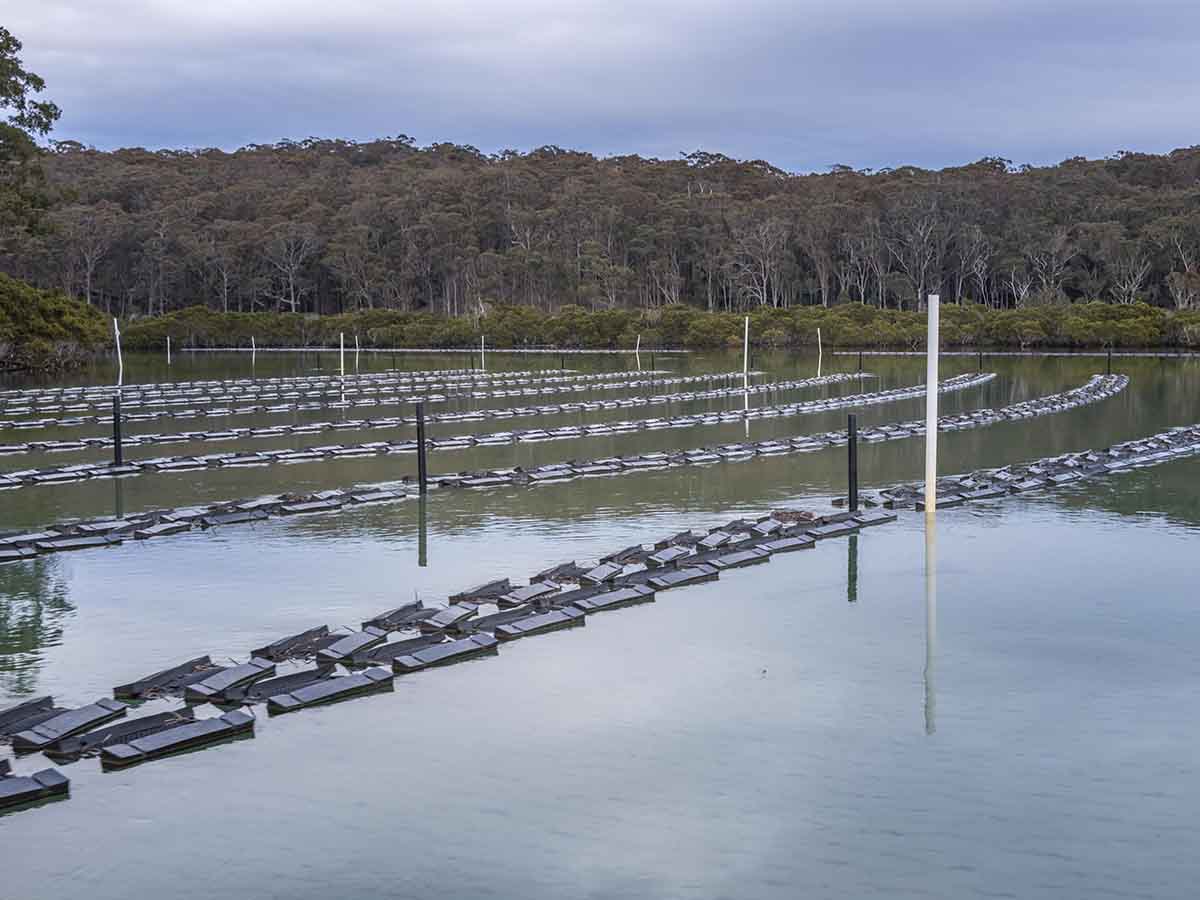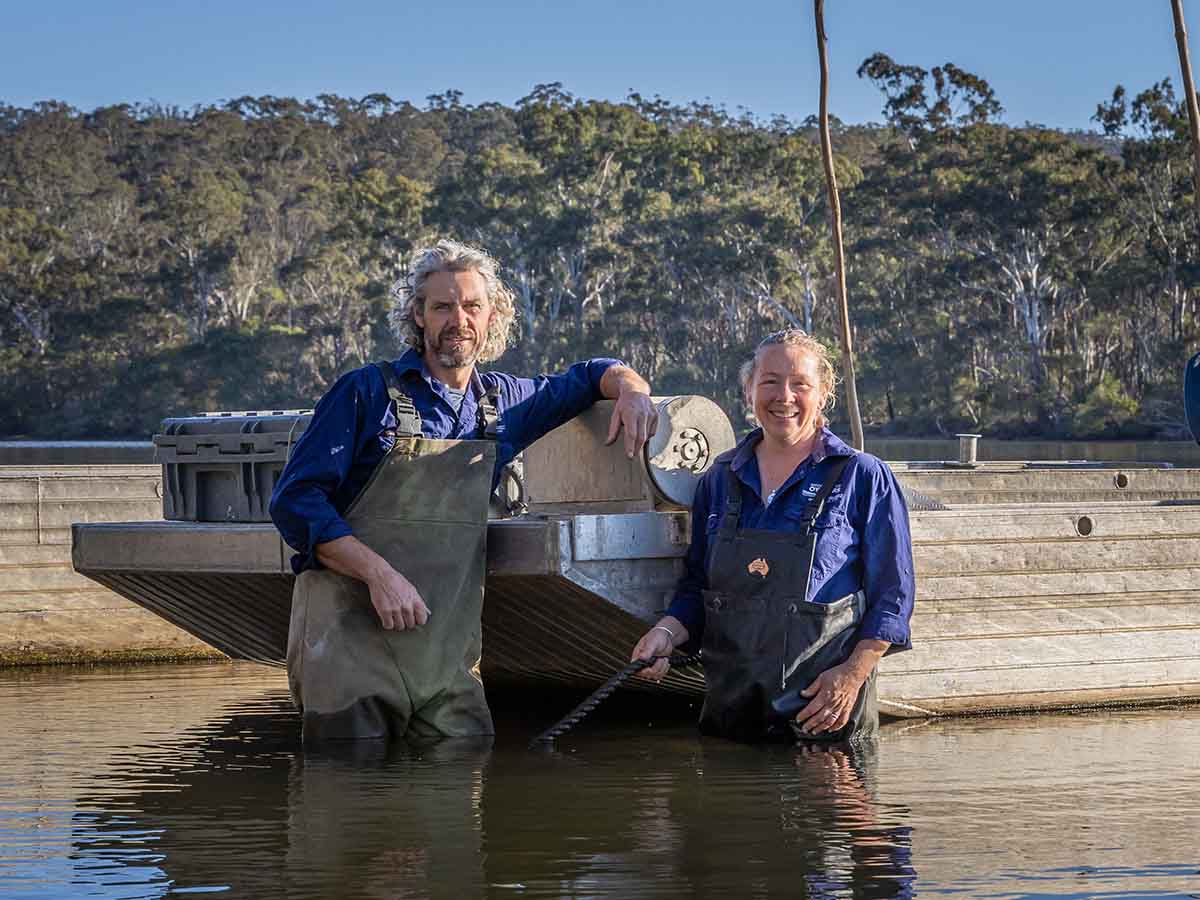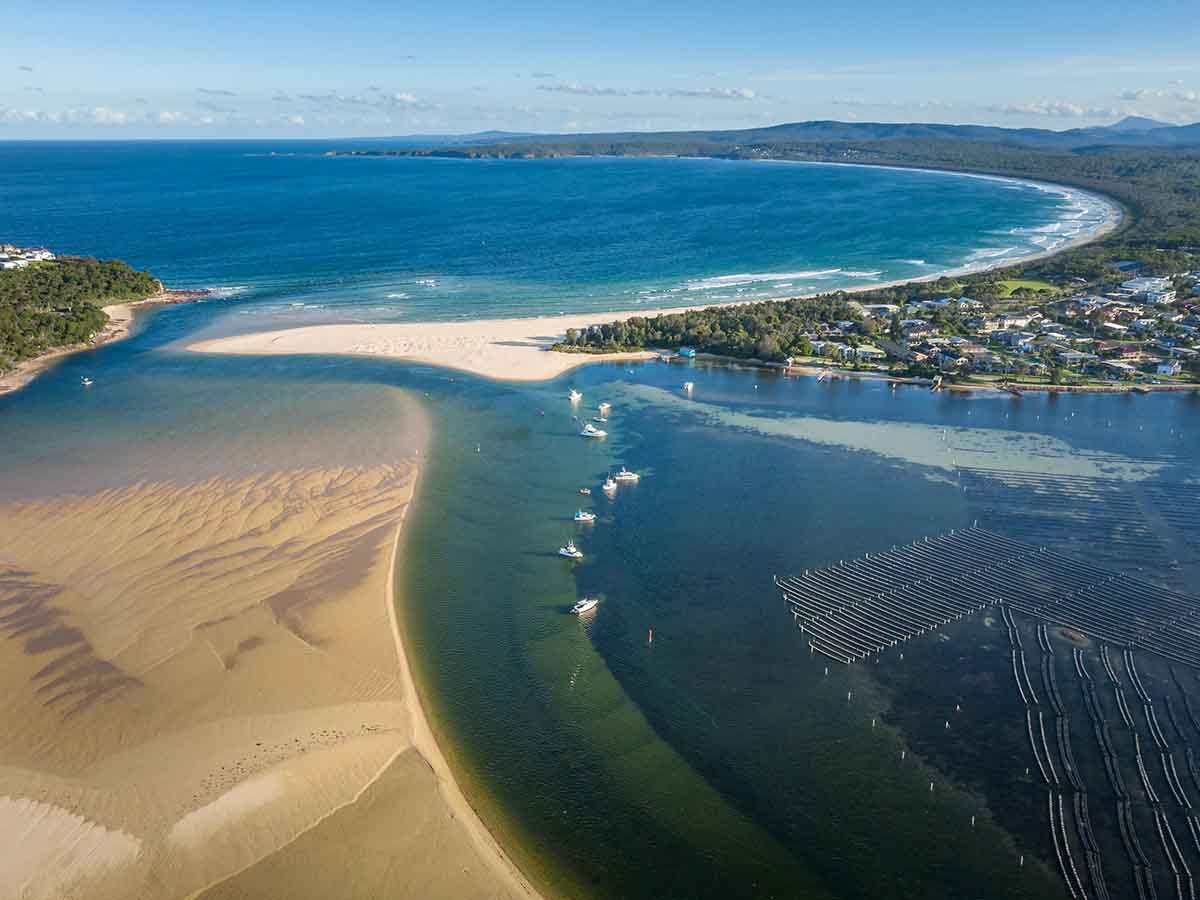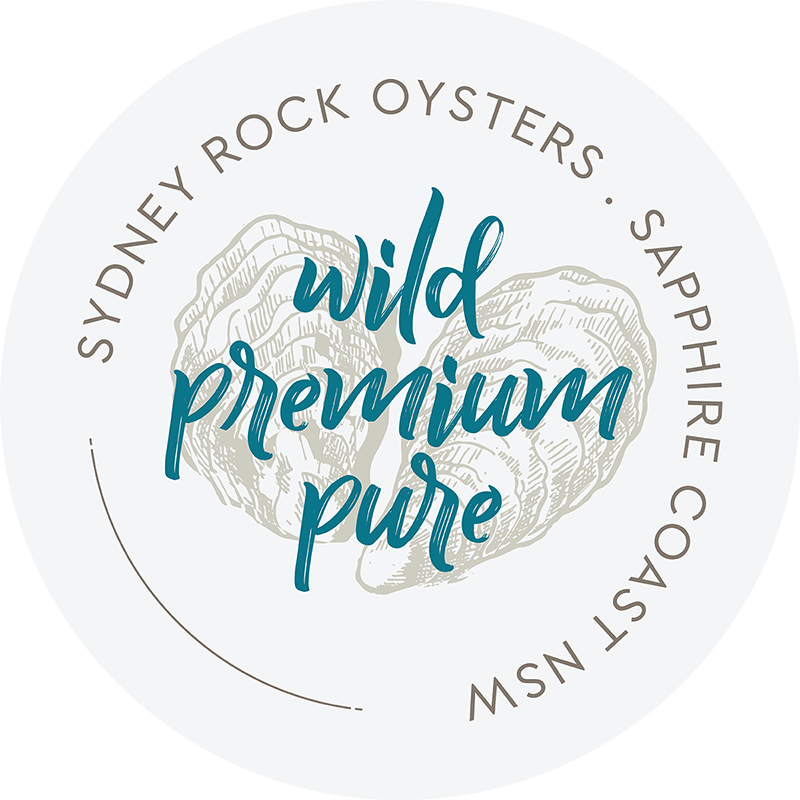Environment
Sydney rock oysters of the Sapphire Coast region are highly awarded, testimony to the quality of our estuaries as well as our farming practices. Not only do oysters require a healthy environment in order to thrive, they also help to actively improve the condition of our waterways. Oysters keep the health of our estuaries in check, under the watchful eye of our local farmers.

Oysters are the “canaries” of coastal waterways, clearly indicating the health of the estuary and surrounding environment.
These filter-feeding molluscs can each clean more than 100 litres of water per day, filtering algae, microscopic plankton and nutrients from the water.
They underpin an intricate ecosystem that not only improves the water quality, but also reduces coastal erosion and increases biodiversity.
CANARIES OF THE COAST

Whilst oysters filter and clean our waterways, they are also sensitive to environmental threats such as pollution, wetland loss and development.
Oyster farmers act as environmental custodians of the region’s coastal rivers, lakes and lagoons, often being the first to notice and take action when environmental threats emerge.
Their stewardship protects the region’s waterways, whilst creating a tastier, healthier and more valuable food product.
STEWARDS OF THE ESTUARY

Oyster farmers happily play an important role as stewards of the local environment but the community also needs to play its part to help maintain the health of the catchment and therefore the oyster industry.
It is important to keep in mind that all activities in the catchment can have an impact on other users, in particular your local oyster growers.
Coastal development and recreational use of waterways is increasing pressure on coastal industries. It is our obligation to protect our coastal resources for future generations, so they can enjoy the same foods and lifestyle that we share today.
COMMUNITY RESPONSIBILITY
EnvironmentAL BENEFITS
ECOLOGICALLY SUSTAINABLE FARMING
Oyster cultivation is one of the most ecologically sustainable types of farming because, unlike fish farming, oysters do not require artificial food sources. Oyster growers rely on the natural environment and sunlight to supply the nutrients and food particles to produce the optimum food mix on which oysters thrive.
FILTRATON CAPACITY
A single oyster can filter a small bathtub of water every day! Oysters gather their food by filtering large volumes of water (20L per oyster per day) from the waterways. This filtration capacity helps to clean the water by removing particulate matter, enhancing water clarity and promoting seagrass, saltmarsh and mangrove health.
CANARIES OF THE WATERWAYS
Oysters are the ‘canaries’ of the waterways – if the oysters are healthy, it indicates that the waterways are healthy.
NOT JUST DELICIOUS
Oysters are not only delicious but are also considered to be one of the most nutritionally balanced foods available. Oysters are 99% fat free, contain less than 0.03% cholesterol and are rich in vitamins, minerals (especially zinc) & Omega 3 fatty acids.
WATER QUALITY MONITORING
As part of the NSW Quality Assurance Program, oyster farmers are constantly monitoring the quality of the water and their oysters. Their diligence means that any unexpected pollution entering a lake is quickly identified and managed, ensuring the water is clean and safe for fishers, swimmers and other users of the lake, as well as oyster consumers.
This is a paragraph. Writing in paragraphs lets visitors find what they are looking for quickly and easily.
This is a paragraph. Writing in paragraphs lets visitors find what they are looking for quickly and easily.
This is a paragraph. Writing in paragraphs lets visitors find what they are looking for quickly and easily.
This is a paragraph. Writing in paragraphs lets visitors find what they are looking for quickly and easily.
This is a paragraph. Writing in paragraphs lets visitors find what they are looking for quickly and easily.
